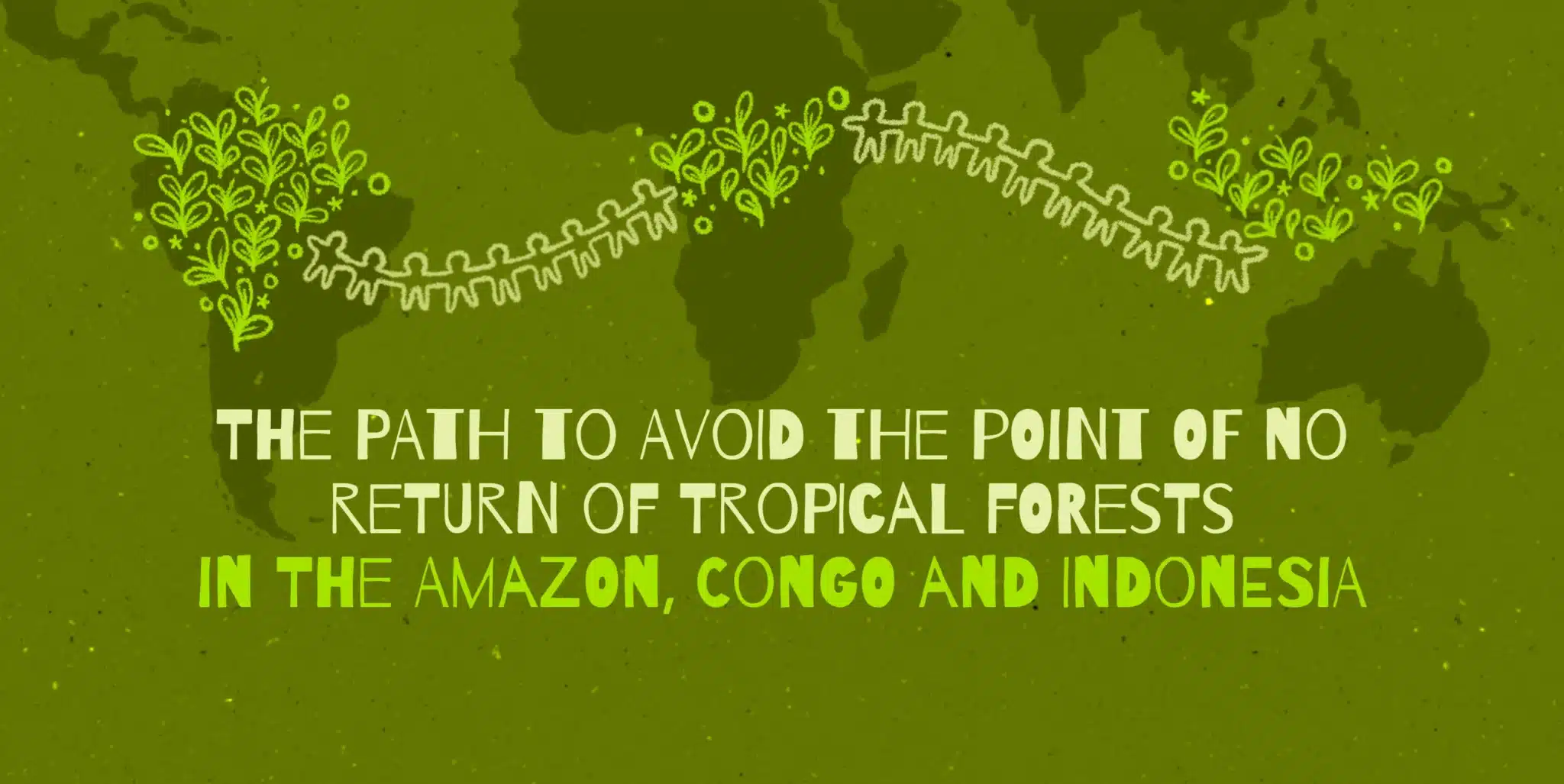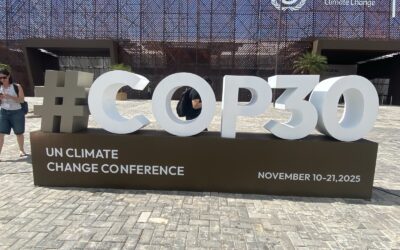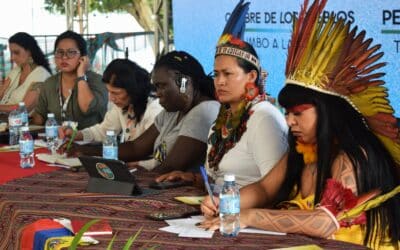The Amazon, Congo, and Indonesian tropical forests—three of the world’s largest and most vital ecosystems—are at a critical juncture. Real solutions to preserve these forests are already emerging from Indigenous territories, peasant communities, and grassroots organizations, rooted in their deep knowledge and stewardship. Yet, these efforts face mounting challenges, including new threats and the proliferation of greenwashed false solutions disguised as progress. In response, representatives from movements, Indigenous Peoples, communities, and organizations across these regions have united in solidarity to confront these dangers and champion genuine, sustainable alternatives. This declaration marks a collective step forward in our shared commitment to protect these irreplaceable forests and the lives and cultures they sustain.
1. Real solutions to preserve tropical forests are already being developed in indigenous territories, peasant communities, black communities, quilombolas, traditional and local communities, grassroots organizations and peoples in voluntary isolation.
2. Food sovereignty, agroecology, community forest conservation, agroforestry, community ecotourism and solidarity economy initiatives are the real solutions to preserve forests, cool the planet and face climate collapse.
3. Successful examples of keeping oil underground, such as the struggles of the Ogoni people in Africa against Shell (1995) and Yasuní in Ecuador (2023), show us that the real way to confront the climate crisis and reduce greenhouse gas emissions is to build territories free of fossil fuels, free of mining, free of agribusiness, free of forest fires, and also free of patriarchy, violence against women and racism.
4. Strengthening the self-management and self-determination of indigenous, peasant and small-scale farmer organizations is key to developing social control mechanisms that prevent forest fires and deforestation.
5. Governments and international organizations must prioritize grassroots initiatives, guaranteeing the titling of their territories, ensuring their economic, social and cultural rights and promoting their local economic initiatives.
6. To stop deforestation, States must limit and reverse the irrational expansion of monoculture plantations such as soy, palm oil and sugar cane, and stop unsustainable cattle ranching, mining, fossil fuel extraction, mega-infrastructure, mass tourism and carbon markets.
7. Recognizing the rights of Nature and of the forest as such is essential for a non-anthropocentric path towards restoring balance and peace with Nature.
8. A network of collaboration between universities and ancestral knowledge centers is key to knowing and expanding the wisdom of indigenous peoples who have preserved forests for centuries.
9. We denounce that governments are moving forward with proposals to finance forests as if they were only carbon deposits and not the common home of peoples and the biodiversity of the planet. Forests are interdependent systems of life, culture, history and identity that cannot be reduced to financial assets.
10. False solutions such as carbon markets, biodiversity credits, REDD+ and different types of financialization initiatives that are presented as “nature-based solutions” must be rejected, since they have not contributed in more than a decade to stopping deforestation and have been used to greenwash the image of polluting corporations and enrich intermediary speculators.
11. Forest peoples are already creating their own mechanisms and platforms for direct financing towards their territories. Governments and international organizations, instead of creating new speculative mechanisms, must direct the necessary resources to contribute to these initiatives that come from those who live with the forests.
12. National regulations in countries with tropical forests must prohibit the export of products that contribute to deforestation and instead provide incentives for agroecological products that contribute to the well-being and restoration of forests.
13. Enough of the persecution and murder of forest and nature defenders! No aggression, no murder must go unpunished and be forgotten.
Let us listen to the cry of the forest and the clamor of its people,
Let’s forge tropical forest internationalism!
Global Amazon Assembly
Global Forest Coalition
People’s Mobilization for the Earth and the Climate
WALHI – Indonesia
Center for Enviromental Justice (CTE) – Togo
Nacionalidad Waorani del Ecuador (NAWE)
Movimiento Sin Tierra (MST) – Brazil
Movimiento pela Soberania Popular na Mineração (MAM) – Brazil
Grupo de Trabalho Amazônico (GTA) – Brazil
Ação Educativa – Brazil
Coletivo Pororoka – Brazil
IAGUA – Brazil
Fundación Solón – Bolivia
Published in November 2024, during the G20 Social in Rio de Janeiro




